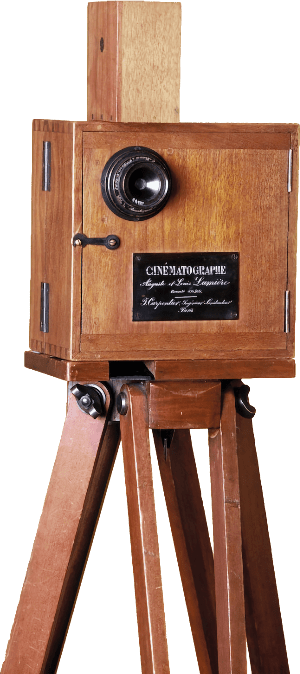
Methods in Practice (MiP) 26 – 30 October
Below you will find the general outline for the Methods in Practice week that will take place from 26-30 October. The week consists of Morning-seminars and tutorials and room to perform practical assignments in the afternoons. Students are expected to reserve the whole week for this training.
Students should find and contact potential research subjects with whom they will do their exercises before the week starts.
We assume that all Master students have experience with doing ethnographic research that they have done in their Bachelor-study. This week is therefore not meant to offer basic training, but offers the opportunity to students to practice the specific methods that they intend to use in their fieldwork under guidance of different supervisors.
Part of the program overlaps for students of all specializations. Some tutorials offer training-opportunities that are specific for one of the three specializations.
Monday 26/10
10:00-11:00 Seminar 1: Being a Researcher 1 (Marja Spierenburg): Introduction to MiP-week. Discuss: ethics, ethnographer as a role, positionality & the politics of representation, postcolonial ethnography, collaboration, engaging in the field, AVG-laws.
11:15-12:00 Tutorial 1: Negotiating Access (Marja Spierenburg): Role-playing-Discuss ownership, exposure, ethical considerations, conditions for collaboration, with another student who performs as your research-subject. how to introduce the signing of a publication / distribution Agreements (AVG-law).
Engaging in Ethnographic research/ filmmaking in the field requires different steps that might vary in different circumstances. From negotiating access to the research-location and agreement to do research (& film) to explaining Participant observation or creating interview-opportunities.
Introducing yourself as researcher and introducing the camera to your main characters may demand that you negotiate opposition to filming, finding grounds for reciprocity and establishing rules to give form to ethical conditions of filming and publishing etc.
12:15-13:00 Specific Tutorial 1: Being in the field in body & soul and with equipment (Metje Postma / Koen Suidgeest) – How to deal with your bodily presence when moving in a new environment. How to introduce your equipment like: sound recorder, photo camera or video-camera in an appropriate way.
Doing Research and filming is not only a technique and a method, but also a corporal and emotional activity in which you as a person have to fully engage. Not only do you have to manage yourself, but you also have to learn to blend in with the social circumstances and expectations of the people you are working with.
In this session we will enter into that physical and emotional practice. How is your body involved in research and filmmaking, how do you deal with emotions of yourself and others, and how can you ‘be’ in the field with or without the camera?
We will share some of our and other (ethnographic) filmmakers’ experiences with you and discuss questions you might have with regard to how you want to approach your role as ethnographer in your own project.
Filmmaking as a wholebody relational practice ➙
The same for All.
14:00-17:00 Assignment 1: Approach your research subject(s), visit your research-location / or make contact online if not possible otherwise, discuss your project with your research-subject and negotiate conditions for research & for using specific equipment.
Aim: Negotiating access in practice. Find a way to fill in your role as researcher.
Learn to explain your aims as ethnographer to people who do not know what anthropology is. Dealing with ethical considerations.
Requirements: If possible, students work in teams of 2 within their specialization.
17:00-18:00: Evaluation & Reflection 1 Students discuss their learning-experiences in small/Kaltura liveroom break-out groups, and send a short report of the discussion to the supervisor of the day. Include a list of individual wishes of what students would like to get out of the MiP- training. Send the group-report and to the supervisor.
19:00-20:00: Q&A Session 1 (Marja Spierenburg) Students can contact the supervisor in case they have any questions. The supervisor will be available on-line between 19.00 and 20.00 hours.
Tuesday 27/10
10:00-11:00 Seminar 2: Being a Researcher 2 (Metje Postma) Research discipline and working methods in and around the field. Planning, improvisation, online encounters, embodied encounters, keeping things going.
11:15-12:00 Tutorial 2: The ethnographic Gaze (Metje Postma): participant observation; systemic observation, note taking, drawing, journal keeping, audio-recording, photography; using your mobile phone in the field.
12:15-13:00 Specific Tutorial 2 (Metje Postma): Each specialization discusses specific role & learning-aims that come with their specialization.
VE: Observing with the camera
14:00-17:00 Assignment 2: (to be performed in teams of 2) Return to your research-site and apply the different ethnographic techniques of observation and recording that you will be using in your research. Follow a specific research-routine. Work from a research-question that you use as guideline to explore your subject. Perform a one-hour observation and work out your notes in your diary and generate an ethnographic record.
Students from different specializations will make use of the different techniques, appropriate to their specialization.
After performing the exercise, also make an entry in your diary in which you reflect on your experiences of being in the field in the role of research.
Aim: Practicing with basic note-taking and recording techniques, similar for all ethnographers and transforming those in an entry as ethnographic record as part of your field-research data.
Requirements: topic should be a lived activity or event outside your own circle, if possible. Students should bring the tools they intend to use during fieldwork
17:00-18:00 Evaluation & Reflection 2: Students discuss their learning-experiences
In small groups. Then write a report of the group-discussion with experiences and questions they want to discuss with the day-supervisor. Send your report to the day-supervisor at least 30 minutes before the Feedback-meeting.
19:00-20:00 Q & A Session– (Metje Postma) Students can contact the supervisor in case they have any questions. The supervisor will be available on-line between 19.00 and 20.00 hours.
Wednesday 28/10
10:00-11:00 Seminar 3: Speech Acts (Koen Suidgeest): Interviewing, leading conversations, overhearing speech acts & group discussions, Ways to engage in speech acts, taking notes and / or recording (in pairs).
11:15-12:00 Tutorial 3: Training Interviewing or Conversing: (Koen Suidgeest) Role-play to practice interviewing/ conversations. Do one interview with question/topic-list, practice with engaging in a conversation that you may want to use for your research.
12:15-13:00 Specific Tutorial 3: Each specialization discusses specific modes of engagement in conversations that come with their specialization – specific problems, interpreters.
VE: Run-through-of recording-practice (Koen Suidgeest)
14:00-17:00 Assignment 3: Do an interview / group discussion / on camera conversation on location, specific for your specialization
Aim: To practice with the mode of engagement in speech acts, specific for your research and to practice recording-techniques during such sessions.
Requirements: You need to have made arrangements with someone on your
research location for conducting the kind of speech-act you wish to perform. Be sure to have your specific recording equipment ready for use.
17:00-18:00 Evaluation & Reflection 3: Students discuss their learning-experiences in small groups. Then write a report of the group-discussion with experiences and questions they want to discuss with the day-supervisor. Send your report to the day-supervisor at least 30 minutes before the Feedback-meeting.
19:00-20:00 Q & A Session (Koen Suidgeest) Students can contact the supervisor in case they have any questions. The supervisor will be available on-line between 19.00 and 20.00 hours.
Thursday 29/10
10:00-11:00 Seminar 4: Ongoing Research: Analysing, reflecting on and managing your data of your ongoing field-research, maintaining & developing your relationships & deepening your research through generating themes & key-concepts. Dealing with shifting focus/themes/topics as result or fieldwork (Ratna Saptari)
11:15-12:00 Tutorial 4: Practicing with organizing your data and writing a field report including different sources & managing your data in a systematic way. (Ratna Saptari)
12:15-13:00 Specific Tutorial 4 (Metje Postma): Each specialization discusses specific ways of processing their research-data and ways that help to generate themes and key-concepts from the research-data during fieldwork, generated through editing & analysis and in relation to your research-question and theoretical perspective.
VE: The practice of editing as analysis- tutorial (Metje Postma)
14:00-20:00 Assignment 4: Write, film & edit a piece (edited sequence, multimodal outcome, text etc.)
Choose an appropriate format for your research) that connects the data that you generated to your research-question and reflect on the key themes/concepts that you generated from your data.
Aim: To exercise how writing / editing can work as an analytical tool during your research. Practice with categorizing, generating key-words and distinguishing ‘story-lines’ from fieldwork to study and back again. Reconnect to theory.
Requirements: Collaborate with your teammate with whom you performed the research and compare how different perspectives and forms of representation (Writing/filming) may draw attention to different aspects of the researched realities.
VE Students:
19:00 Deadline to upload a 3-5-minute edited output (film or multimodal) to Kaltura Media Gallery.
20:00-22:00 VE CRIT Session — In Kaltura Live Room we will have a plenary feedback session with all VE instructors and students.
Friday 30/10
09:00-10:00 Seminar 5: Health and Sanity in the field (Jan Jansen)
10:00-11:00 How to Avoid Fraud and Plagiarism in the 21st Century
11:15-12:00 Tutorial 5: Plagiarism Test
13:00-16:00 Feedback session on written/edited student-works + advice for further Training (all 4 supervisors.). On Campus if possible- One work-group for each specialization.
16:00-17:00 Feedback by students on MiP-week– Discussion on what skills students feel they have developed and which ones require more training.
Drinks

